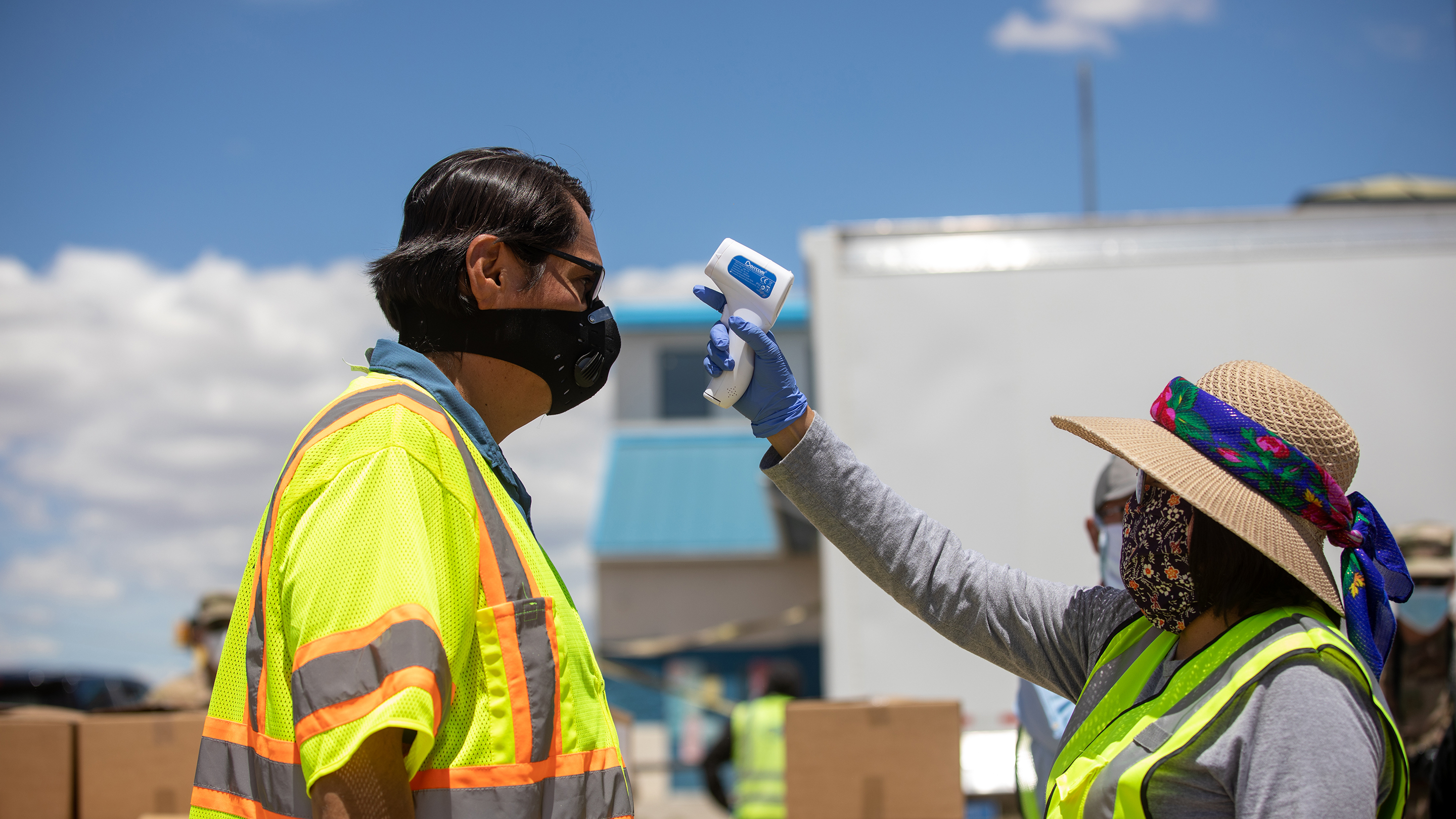
Across the U.S., Native American communities have experienced the public health and economic consequences of the pandemic at disproportionate rates.
It’s also the case that many tribal communities were experiencing deep-seated inequalities and infrastructure gaps long before COVID-19, at least partially due to the federal government’s failure to uphold treaties and trust responsibilities with tribal governments.
Patrice Kunesh, the former director of the Center for Indian Country Development at the Minneapolis Fed, said the virus underscores the need to think about “inclusive prosperity” as the intersection between economic recovery and social welfare.
“When I think of inclusive prosperity for Indian Country, what I see in terms of economic recovery, I also see in terms of social welfare, being two sides of this larger issue,” said Kunesh, who is of Standing Rock Lakota descent and is currently development officer at the Native American Rights Fund.
One idea for addressing the structural disinvestment in tribal communities? Social impact bonds.
“Indian Country is 60 million acres of pretty much locked-up capital. We want to explore opportunities for bigger, better projects that are under the control and direction and management of the tribe,” Kunesh told “Marketplace Morning Report” host David Brancaccio.
“Investors are willing to raise funds, put money on the table for projects with a positive social outcome — and the real opportunity to provide an investment return to the investor, as well.”
The following is an edited transcript of their conversation.
David Brancaccio: Inclusive prosperity — what does that mean in the context in which you tend to work, but could it also inform efforts to address inequality more widely?
Patrice Kunesh: When I think of inclusive prosperity for Indian Country, what I see in terms of economic recovery, I also see in terms of social welfare, being two sides of this larger issue. Indian Country is 60 million acres of pretty much locked-up capital. We want to explore opportunities for bigger, better projects that are under the control and direction and management of the tribe.
Brancaccio: We have to be careful about saying what we’re going through now is somehow an opportunity, with the pandemic, but do you see it, at some level, as an opportunity to push policies that might not have been on the table a few months ago?
Kunesh: Yeah, I do. I do see this crisis as an opportunity for innovative thinking. So, for example, the opportunity to use social impact bonds. Investors are willing to raise funds, put money on the table for projects with a positive social outcome — and the real opportunity to provide an investment return to the investor, as well.
Brancaccio: Would tribes themselves issue, perhaps, these social bonds? Or is the idea that third parties, for instance philanthropies, do it?
Kunesh: I think both. Tribes do have the capacity to issue bonds, but I’d love to see private-public partnerships where we could combine purpose with profit.
Brancaccio: So it could be, you float some bonds and you could build some schools. You could build some wastewater reclamation projects. You could fix some roads.
Kunesh: Absolutely. Think about managing food insecurity and, as you said, access to education. And if we can think bigger, we can build up not just the access to services but employment opportunities, really skilled employment opportunities.
Brancaccio: When we’re talking about things like inclusive prosperity, which you start to frame as an economic issue — it’s also a political issue, right?
Kunesh: Oh, definitely. Access to the ballot translates to access to opportunity. And we really didn’t have the right to vote in U.S. elections until 1948 — that’s only 70 years ago. But now and still, we have too many barriers and roadblocks to voting in Native American communities. We have several states with voter ID laws that don’t recognize tribal IDs, for example. Or we will have state laws requiring physical addresses when reservation communities typically don’t have a street address. But more than that, we don’t have enough polling places or oftentimes any polling places on reservations, and the transportation alone would be like 150 miles round-trip. So we have many issues around voting rights.
As a nonprofit news organization, our future depends on listeners like you who believe in the power of public service journalism.
Your investment in Marketplace helps us remain paywall-free and ensures everyone has access to trustworthy, unbiased news and information, regardless of their ability to pay.
Donate today — in any amount — to become a Marketplace Investor. Now more than ever, your commitment makes a difference.
"social" - Google News
August 14, 2020 at 07:29PM
https://ift.tt/3iExyjY
How social impact bonds could spark prosperity for Indian Country in a pandemic recovery - Marketplace
"social" - Google News
https://ift.tt/38fmaXp
https://ift.tt/2WhuDnP
Bagikan Berita Ini














0 Response to "How social impact bonds could spark prosperity for Indian Country in a pandemic recovery - Marketplace"
Post a Comment